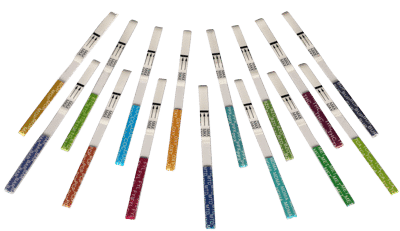Accurate, fast, and easy to use. Quick Results, Lowest Prices.
Unraveling the Mystery of Tianeptine and Zaza: A Comprehensive Guide on Drug Testing and Usage

In wellness supplements, the rise of unique compounds like Tianeptine has sparked curiosity and interest. One such product making waves is Zaza, an over-the-counter dietary supplement. This comprehensive product description aims to unravel Tianeptine, Zaza’s mysteries and the crucial considerations surrounding drug tests and responsible usage.
The Enigma of Tianeptine
What is Tianeptine?
Tianeptine, originally developed as an antidepressant, has gained popularity for its potential mood-enhancing effects. It stands out from traditional antidepressants due to its unique mechanism of action, modulating glutamate receptors to provide a mood-lifting effect. Despite its potential benefits, it’s essential to note that Tianeptine has not received approval from the U.S. Food and Drug Administration (FDA) for medical use.
The Rise of Tianeptine in Wellness Circles
Tianeptine has found its way into the wellness community, with individuals seeking alternatives to traditional pharmaceuticals. Some users report positive experiences, citing improved mood and a sense of well-being. However, the lack of FDA approval raises questions about safety, efficacy, and the need for responsible usage.
Introducing Tianeptine – A Closer Look
Zaza – Beyond the Name
Zaza is a brand of over-the-counter dietary supplements that has become synonymous with Tianeptine. These supplements are often available in gas stations and convenience stores, marketed as mood-enhancers or relaxation aids. Zaza products come in various forms, such as capsules or powders, containing Tianeptine sulfate as a key ingredient.
Navigating Tianeptine Unique Landscape
Understanding the composition of Zaza products is crucial for users. Tianeptine sulfate, a common ingredient in Zaza, raises questions about its potential detection in drug tests. Users must be informed about the specific compounds targeted by drug tests and the implications of Zaza usage on these tests.
Tianeptine and Drug Tests – A Complex Relationship
The Challenge of Detection
Traditional drug tests designed for common substances like opioids or amphetamines may not readily identify Tianeptine. Its unique chemical structure and metabolism pose challenges for routine drug screenings. However, specialized tests can be employed to detect Tianeptine and its metabolites in urine or blood samples.
Zaza Drug Tests – Unraveling the Connection
Given that Zaza products may contain Tianeptine sulfate, the likelihood of detection in drug tests may increase. Users need to be aware of the specific substances targeted by the drug test and communicate openly with healthcare professionals about any supplements or medications they may be taking.
Responsible Tianeptine Usage
Dosage and Recommendations
Responsible usage of Zaza products, or any substance containing Tianeptine, is paramount. Users should adhere to recommended dosages and be cautious of excessive consumption. It’s crucial to follow the product’s instructions and consult with healthcare professionals if there are any uncertainties.
Potential Risks and Side Effects
While some users report positive experiences, it’s essential to acknowledge potential risks and side effects associated with Tianeptine and Zaza usage. Adverse effects, including nausea, dizziness, and, in extreme cases, addiction, may occur with misuse. Users should exercise caution and seek medical advice if any concerning symptoms arise.
Staying Informed in a Shifting Landscape
Regulatory Considerations
As of the last knowledge update in January 2022, Tianeptine remains unapproved by the FDA for medical use in the United States. The regulatory landscape surrounding Tianeptine and products like Zaza may evolve, and users are encouraged to stay informed about changes in regulations and guidelines.
In the pursuit of wellness, Tianeptine has become an intriguing option for many. However, the key to a positive experience is informed and responsible usage. Users should prioritize open communication with healthcare professionals, understand the implications of drug tests, and be aware of potential risks associated with misuse. Zaza, when used responsibly, has the potential to be a part of a holistic approach to well-being, providing users with the tools they need to make informed decisions for their health.






